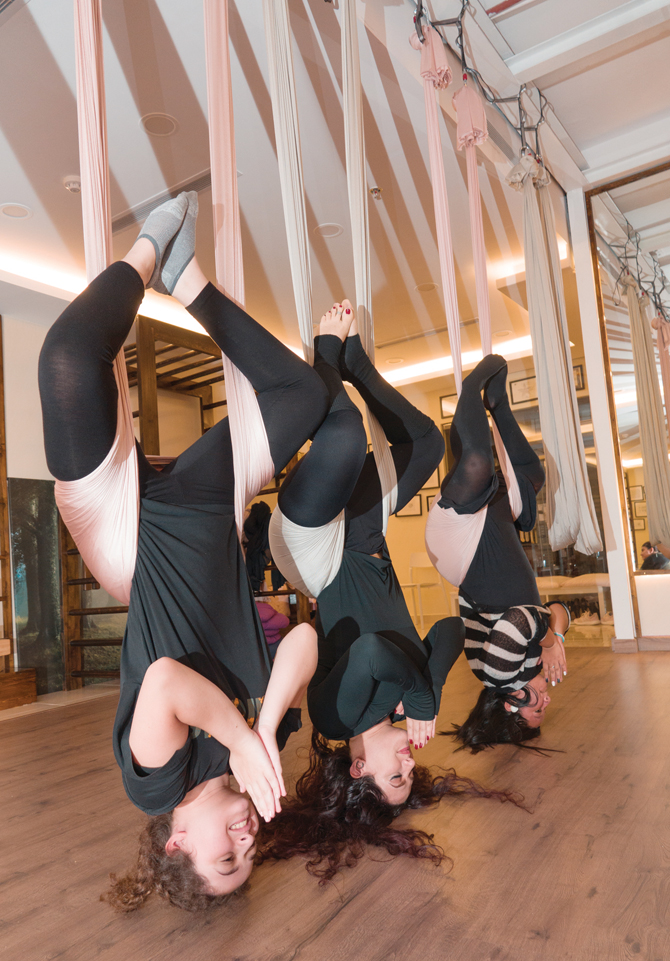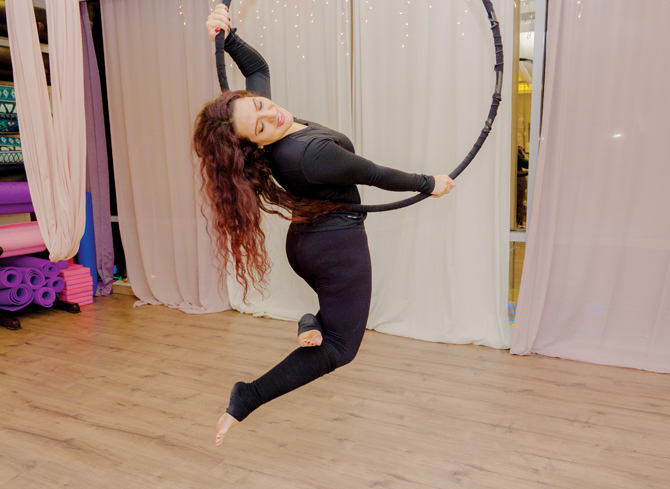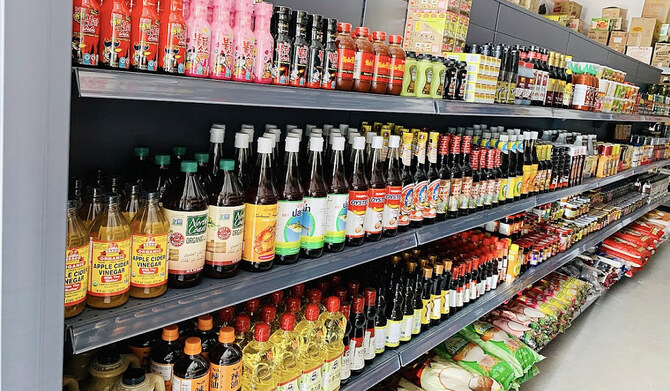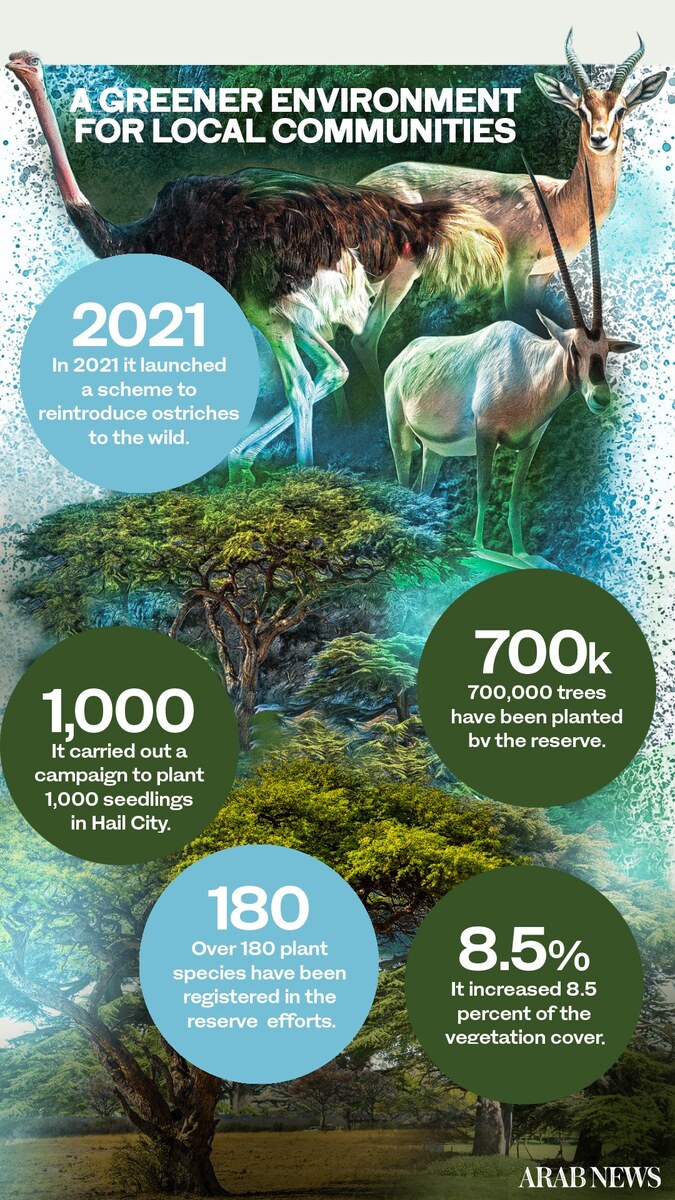JEDDAH: A Saudi flying trapeze artist has found soaring business success just months after launching the Kingdom’s first aerial yoga studio.
Roa’a Al-Sahhaf, the country’s first female circus performer, said her modern yoga classes have proved so popular among Saudis she is already looking to expand throughout the Kingdom.
The 42-year-old mother of three girls, opened Saudi Arabia’s first certified aerial arts studio in the coastal city of Jeddah in March this year offering yoga, pole dancing, Pilates, family dance classes, and boxing.
Aerial yoga uses a hammock to support, either fully or partially, the weight of students while they work on traditional yoga postures. Not only does it enable them to perform advanced yoga moves that would normally take years to learn but hanging upside-down can be good for the spine and builds confidence.
Al-Sahhaf graduated from The Prince’s Foundation School of Traditional Arts in London and has been practicing aerial silks, as they are known, since she was a child. However, she only began to make a career of it in 2009.
“I was the first Saudi female circus performer. Actually, it was my childhood dream to perform in a circus, and thanks to Taif Season it came true in Circo Americano,” she said.
I started loving aerial arts as a kid, but we did not have gymnastics here so the first time I saw this studio, I pursued it.
Mawaddah Mahboob, Saudi lawyer
During the recent Taif festival season of activities Al-Sahhaf performed in flying trapeze and aerial shows with the famous circus.
“I tried to join Circo Americano a year ago, but it was not allowed for females to participate,” she added. “But when things changed, I leapt at the opportunity to shine.”

Pole dancing
The Pole Spirit Paris studio was where Al-Sahhaf learned the discipline of pole dancing and other aerial moves in 2012 and she is now a certified coach from a number of top US and European institutes.
Armed with her qualifications, she decided to introduce her passion for aerial arts to Jeddah. “I had times where I could not travel, so I wanted to practice it here in my city. I decided to open a studio room in my house, and it worked. It started with family and friends of friends, and little by little gyms and studios began to call and ask me to give classes,” she added.
Al-Sahhaf now offers workshops and classes in more than six gyms and studios across Jeddah, in addition to running workshop tours throughout the Kingdom and other GCC countries.
Raised in Paris, Al-Sahhaf said she always had a passion for gymnastics. “I saw aerial hoop in a show when I was in Paris a few years ago, and I was hooked. My parents used to live there, so whenever there was a chance to learn gymnastics or aerial silks skills I used to sign up,” she said.
Her studio, located in Al-Khalidiyah district of Jeddah, offers workshops and training programs for fitness instructors looking to teach aerial arts.

Aerial yoga
In the future, Al-Sahhaf wants to build a Saudi community of aerialists. “I want to engage with the Saudi General Entertainment Authority for more performances and shows done by the studio team. I would love to collaborate with gyms and studio owners around Saudi Arabia to include these types of arts and sports in their gym schedules,” she added.
Al-Sahhaf said aerial yoga had many mental and physical health benefits and most people could take part.
Mawaddah Mahboob, a 23-year-old Saudi lawyer who attends classes at Al-Sahhaf’s studio, told Arab News: “I started loving aerial arts as a kid, but we did not have gymnastics here so the first time I saw this studio, I pursued it.
“It helped me a lot to get more in tune with my body and made me realize that you don’t have to be skinny to be fit. It certainly brings positivity to your life,” she added.
Samia Abushosha, an assistant professor of physics at King Abdul Aziz University, said: “I am 44 years old and it feels like a great accomplishment doing this at my age. I only started nine months ago, and I can feel the positive vibes it gives me in every class.”
Afnan Al-Zain is one of Al-Sahhaf’s coaching assistants and an assistant professor at the faculty of dentistry at King Abdul Aziz University. She started doing aerial yoga in 2017 in the US. “To me this is like my side job as it relaxes my mind, helps me release stress and enhances creativity so that my mind becomes clearer to give more in my career.”







































